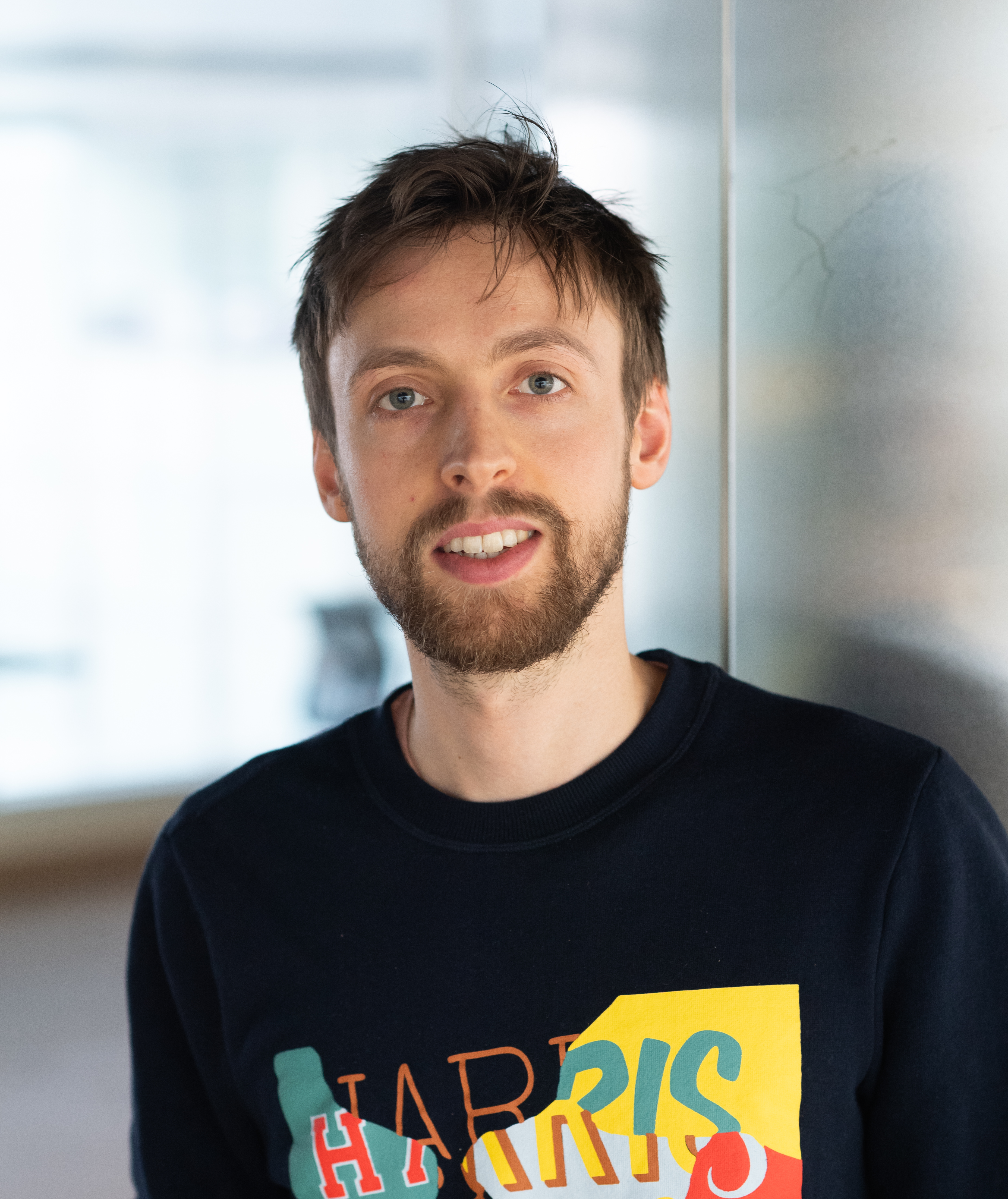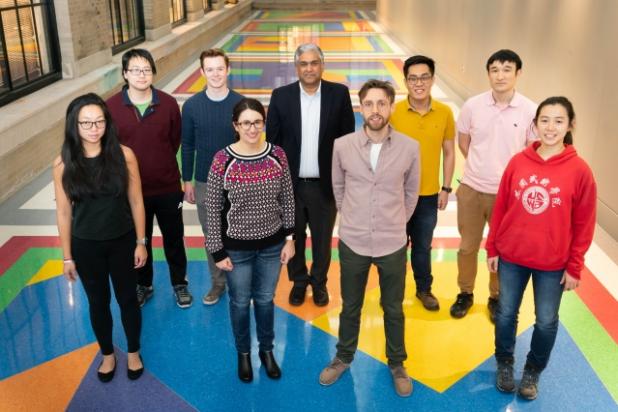
Nicolas Meirhaeghe, an HST MEMP student, was recently awarded an engineering fellowship from MathWorks.
The 2019-20 School of Engineering MathWorks Fellows, including an HST MEMP graduate student, are using MATLAB and Simulink to advance discovery and innovation across disciplines.
Lori LoTurco | School of Engineering
Nicolas Meirhaeghe, a PhD student in the HST MEMP program, specializing in Bioastronautics, was recently awarded an engineering fellowship from MathWorks.
Meirhaeghe, who uses the MathWorks product MATLAB to visualize activity in the brain in order to understand how it is related to an individual’s behavior, says that “MathWorks, and particularly Matlab, has been instrumental in my research so far, and I’m truly humbled to be awarded this fellowship for my work at the intersection of neuroscience and engineering."
Meirhaeghe is currently studying how the brain changes during learning. The goal of his research is to decipher the logic behind how neurons change the way they communicate between one another to help an individual adapt to sudden changes in their surroundings.
Founded in 1984 by Jack Little ’78 and Cleve Moler, MathWorks was built on the premise of providing engineers and scientists with more powerful and productive computation environments. In 1985, the company sold its very first order — 10 copies of its first product, MATLAB — to MIT.
Decades later, engineers across MIT and around the world consistently rely on MathWorks products to accelerate the pace of discovery, innovation, and development in automotive, aerospace, electronics, biotech-pharmaceutical, and other industries. MathWorks’ products and support have had a significant impact on MITx, OpenCourseWare, and MIT’s digital learning efforts across campus, including the Department of Mathematics, one of the School of Engineering’s closest collaborators in the use of digital learning tools and educational technologies.
“We have a strong belief in the importance of engineers and scientists,” says Little. “They act to increase human knowledge and profoundly improve our standard of living. We create products like MATLAB and Simulink to help them do their best work.”
As the language of technical computing, MATLAB is a programming environment for algorithm development, data analysis, visualization, and numeric computation. It is used extensively by faculty, students, and researchers across MIT and by over 4 million users in industry, government, and academia in 185 countries.
Simulink is a block diagram environment for simulation and model-based design of multidomain and embedded engineering systems, including automatic code generation, verification, and validation. It is used heavily in automotive, aerospace, and other applications that design complex real-time systems.
This past summer, MathWorks celebrated 35 years of accelerating the pace of engineering and science. Shortly following this milestone, MathWorks awarded 11 engineering fellowships to graduate students within the School of Engineering who are active users of MATLAB or Simulink. The fellows are using the programs to advance discovery and innovation across disciplines.
“PhD fellowships are an investment in the world’s long-term future, and there are few investments more valuable than that,” says Little.

MathWorks fellows with Anantha Chandrakasan (back row, center), dean of the MIT School of Engineering. Not pictured: Fellows Pasquale Antonante, Alireza Fallah, and Kate Reidy. Photo: David Degner
In addition to Meirhaeghe, the 2019-20 MathWorks fellows are:
Pasquale Antonante is a PhD student in the Department of Aeronautics and Astronautics. He uses MATLAB and Simulink to build tools that make robots more accurate.
Alireza Fallah is a PhD student in the Department of Electrical Engineering and Computer Science. He uses Matlab and Symbolic Math Toolbox to develop better machine-learning algorithms.
James Gabbard is a SM/PhD student in the Department of Mechanical Engineering. He uses MATLAB to model fluids and materials.
Caroline Nielsen is a PhD student in the Department of Chemical Engineering. She uses MATLAB to implement and test new applications of non-smooth analysis. She also intends to use MATLAB to in the next phase of her research, developing methods to simultaneously optimize for minimal resource use and operating costs.
Bauyrzhan Primkulov is a PhD student in the Department of Civil and Environmental Engineering. He uses MATLAB to build computational models and explore how fluids interact in porous materials.
Kate Reidy is a PhD student in the Department of Materials Science and Engineering. She studies how 2D materials — only a single atom thick — can be combined with 3D materials, and uses MATLAB to analyze the properties of different materials.
Isabelle Su is a PhD student in civil and environmental engineering. She builds computational models with MATLAB to understand the mechanical properties of spider webs.
Joy Zeng is a PhD student in chemical engineering. Her research is focused on the electrochemical transformation of carbon dioxide to fuels and commodity chemicals. She uses MATLAB to model chemical reactions.
Benjamin "Jiahong" Zhang is a PhD student in computational science and engineering. He uses MATLAB to prototype new methods for rare event simulation, finding new methods by leveraging mathematical principles used in proofs and re-purposing them for computation.
Paul Zhang is a PhD student in electrical engineering and computer science. He uses MATLAB to develop algorithms with applications in meshing — the use of simple shapes to study complex ones.
For MathWorks, fostering engineering education is a priority, so when deciding where to focus philanthropic support, MIT — its very first customer — was an obvious choice.
“We are so humbled by MathWorks' generosity, and their continued support of our engineering students through these fellowships,” says Anantha Chandrakasan, dean of the School of Engineering. “Our relationship with MathWorks is one that we revere — they have developed products that foster research and advancement across many disciplines, and through their support our students launch discoveries and innovation that align with MathWorks’ mission.
* Originally published in MIT News: http://news.mit.edu/2020/accelerating-pace-engineering-mathworks-fellows-0128